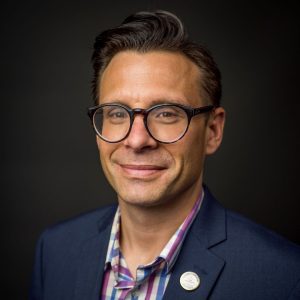Jesus went out of his way to meet an unnamed woman, commonly known as the woman at the well or the Samaritan woman. When telling the story, John wrote, “(Jesus) had to travel through Samaria” (Jn. 4:4). Except, in one sense, he didn’t. To take the route he chose, Jesus went out of his way to travel through Samaria. “Had to travel” meant he made an intentional choice to go where she was, to meet her on her turf. Jesus knew a lot about this woman – including the time she would come by the well (“noon” – Jn. 4:6), her checkered marital history (“you’ve had five husbands” – Jn. 4:18), her current immoral lifestyle (“the man you now have is not your husband” – Jn. 4:18), and the curtain of religious confusion she used to justify her behavior (“our fathers worshipped on this mountain, but you Jews say the place to worship is in Jerusalem” – Jn. 4:20). Despite knowing these intimate details, there’s no mention in the story of Jesus calling her by name. Yet, she is one of the most famous women in Christian history and a timeless example of Jesus going where people were to connect with them.
Once the woman at the well professed faith in Jesus, what she did next is instructive for all Christians—no matter their previous religious beliefs, cultural prejudices, marital history, or moral behavior. The woman “left her water jar, went into town, and told the people, ‘Come, see a man who told me everything I ever did. Could this be the Messiah?’ They left the town and made their way to him” (Jn. 4:28-30). As a result of her witness, “many Samaritans from that town believed in him because of what the woman said when she testified, ‘He told me everything I ever did’” (Jn. 4:39). Ultimately, “many more believed because of what he said. And they told the woman, ‘We no longer believe because of what you said, since we have heard for ourselves and know that this really is the Savior of the world’” (Jn. 4:41-42). Immediately after her encounter with Jesus, the woman at the well went to her village and testified about him. Her story was so compelling people sought Jesus and believed in him. An unnamed woman became the impetus for the good news of Jesus being shared among the Samaritans.
All Christians, not just a spiritually elite few, have the privilege of sharing the gospel with other people. While some will be better at it than others, no one is disqualified because of perceived limitations or past lifestyle choices. The woman at the well had several strikes against her—she was a multi-divorced, openly fornicating, Samaritan woman. That’s quite a resume! Yet, once convinced of Jesus’ identity, she became a messenger of grace and hope back to people who knew her well.
This is the genius of God’s plan for sharing the gospel through everyday believers with everyday people. Christians come from every walk of life with every conceivable sin and shortcoming in their background. Rather than hide those scars and experiences, they go among people who are like they used to be before becoming believers. Bikers go to bikers, executives go to executives, cops go to cops, moms go to moms, and on and on and on. Rather than homogenize believers by leaching out distinctive differences, God uses all kinds of Christians to reach all kinds of people with the gospel.
The gospel flows more naturally through affinity relationships. God needs shadow Christians sprinkled throughout every community. God is looking for Christians who will go out of their way to interact with unbelievers, not shun or avoid contact with them. Jesus modeled doing this. You must follow his example.
Summer blogs are excerpted from my book “Shadow Christians: Making an impact when no one knows your name.”
Read More

Hope in Suffering
Gateway student Matt Bodden is an evangelist who is ready to answer the question of suffering with the gospel.

The Gateway Journal of Theology Inaugural Issue
Read all new articles in the inaugural issue of The Gateway Journal of Theology.
Listen
Prophets | Daniel Part 2
Now with the historical portion of Daniel done, Dr. Wegner takes us through the visions of beasts and years. All these figures intending to show us something. What does it all tell us about God?

Theology and Missiology with Dr. Peter Lillback
Rev. Dr. Peter Lillback, president of Westminster Theological Seminary, PA, and founder of The Providence Forum, joins Dr. Hopkins to chat about the inclusion of young children during the main services in church, the religion and theology of George Washington, and the

Watch

Jonathan Edwards and the Asbury Revival
Chris Chun and Chris Woznicki discuss the signs of true revival, signs of the work of the Holy Spirit, and why it is important to critically assess the characteristics of revival in a spirit of charity.

Jonathan Edwards and the Baptists | Douglas Sweeney, Nathan Finn and Chris Chun
Dr. Douglas Sweeney and Dr. Nathan Finn joined Dr. Chris Chun for a panel discussion on Jonathan Edwards, recorded live at the SBC Annual Meeting in Anaheim.




